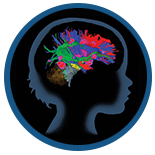
Using a pioneering brain-imaging technique called magnetoencephalography (MEG), I-LABS will measure the brain activity of parents and children while they engage and interact with each other. These and related studies will illuminate the impact of social and emotional interactions on the growing, learning brain.
I-LABS is collaborating with world-leading geneticists to investigate the roles that genetics and the environment play in early development and to identify the conditions that expand 'critical periods' for learning.
Our scientists are investigating the mechanisms of developmental change in the first 2,000 days of life. We will explore key achievements such as when children acquire the skills, customs, and values of their culture, a self-concept, self-control, and empathy for others.
What predicts school readiness and success? How do we identify children with challenges and prevent them from falling behind? Longitudinal studies, from infancy through first grade, will enable us to create measures of school readiness and to identify problems early on when interventions to address them are most effective.
Under what conditions and at what ages might children benefit from the use of technology? What we discover could be used to refine learning technologies, from computers to mobile phones, in ways that promise personalized learning in developing children.
The Ready Mind Project is exploring how experiences of children vary due to their gender, socio-economic circumstances, and race/ethnicity, and how they shape children's attitudes, self-image, and success in school and throughout life.
